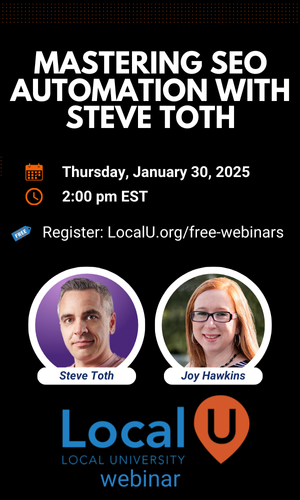- Joined
- Jun 6, 2018
- Messages
- 573
- Reaction score
- 55
So guys, since I am moving away from local pc repairs here in NY which has been non-existent since Covid, I want to test writing one weekly blog myself for my pc repair site just to see if it will increase calls/traffic. I will be focusing on Online work trying my hand at SEO, Web design and especially website repair and maintenance.
This is the sum of what I have put together for Blog writing from all that I have learned on this forum, in youtube videos, Yoast and other articles like Neil Patel, Moz, Hubspot and others. I would appreciate very much if you guys can advise on anything at all which may not be accurate or can be improved in any way please? Thanks in advance guys.
BLOG Writing:
Meta Title:
Use raw actual kw [Test different titles]
Incorporate numbers Eg: [5 ways to design a web page]
Include an offer
Add a teaser
Meta Description:
No more than 155 characters
Consider the meta description the invitation to your page, you have to think about your user and their (possible) motivation to visit your page. People need to know what they can expect to find on your page and how you can help them.
Add kw
Include a call-to-action [Find out more!, Call us today! Get help now! E.t.c]
Do not use same info in multiple blogs.
Slug: Actual kw
Content:
Try for at least 350 words but the longer the better
Use only fresh and relevant content which will be beneficial for the reader
Do not sell your services but link to them
Use bullet points whenever possible
Use main kw in one h1 heading and two h2 subheadings and only a few times in content
Main kw in first paragraph
“Near me or nearby” in one subheading and once in content
3 Secondary kw’s each in subheading and once in content
One outbound link to any popular high DA site
Few internal links to main pages
Link from one blog to another
Link from main pages to blog
Images:
Large quality responsive images
Photo must match topic/kw
Compress image on Squoosh.app
Check page speed on google’s pagespeed
Filename should tell what the image is about
Make Title and Alt tags different – Use kw in both
Caption should tell something specific about the image
Use visual aids if possible in content
Videos:
Video content must match topic/kw
Kw in both title and description
Host video online like on youtube
This is the sum of what I have put together for Blog writing from all that I have learned on this forum, in youtube videos, Yoast and other articles like Neil Patel, Moz, Hubspot and others. I would appreciate very much if you guys can advise on anything at all which may not be accurate or can be improved in any way please? Thanks in advance guys.
BLOG Writing:
Meta Title:
Use raw actual kw [Test different titles]
Incorporate numbers Eg: [5 ways to design a web page]
Include an offer
Add a teaser
Meta Description:
No more than 155 characters
Consider the meta description the invitation to your page, you have to think about your user and their (possible) motivation to visit your page. People need to know what they can expect to find on your page and how you can help them.
Add kw
Include a call-to-action [Find out more!, Call us today! Get help now! E.t.c]
Do not use same info in multiple blogs.
Slug: Actual kw
Content:
Try for at least 350 words but the longer the better
Use only fresh and relevant content which will be beneficial for the reader
Do not sell your services but link to them
Use bullet points whenever possible
Use main kw in one h1 heading and two h2 subheadings and only a few times in content
Main kw in first paragraph
“Near me or nearby” in one subheading and once in content
3 Secondary kw’s each in subheading and once in content
One outbound link to any popular high DA site
Few internal links to main pages
Link from one blog to another
Link from main pages to blog
Images:
Large quality responsive images
Photo must match topic/kw
Compress image on Squoosh.app
Check page speed on google’s pagespeed
Filename should tell what the image is about
Make Title and Alt tags different – Use kw in both
Caption should tell something specific about the image
Use visual aids if possible in content
Videos:
Video content must match topic/kw
Kw in both title and description
Host video online like on youtube




